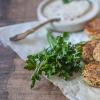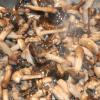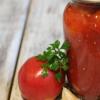Possible causes of bloating and abdominal pain. Feeling of full stomach Abdominal distention gas
Improper digestion is the most common cause of discomfort in abdominal... Bloating, causes and treatment is a hot topic of discussion. These unpleasant sensations can be experienced by people who are completely healthy or suffering from chronic diseases.
The mechanism of the digestive process
Food digestion begins at oral cavity and ends in the rectum. However, the most intense process of splitting organic matter received from food occurs in the upper intestine.
Improper digestion is the most common cause of abdominal discomfort.
The essence of the digestive process is to grind food to such a state that it could pass through the intestinal walls and blood vessels... Carried out with the blood flow, it will serve as a building material for the formation of cells and tissues of a given organism.
Digestion of food is a chemical process that is accompanied by the appearance of waste, that is, substances that the body does not need. It is they who give the stool a characteristic color and smell. Some of these substances are released in gaseous form and excreted from the body along with feces. It is these processes that cause bloating.
With healthy digestion, there are few gases and their presence is not felt at all by a person. However, almost all disorders of the gastrointestinal tract lead to the formation of excess gas. This is immediately felt at the subjective level of perception of one's state.
Symptoms and sensations
The symptoms of bloating are as follows:
- in the feeling of a strong and even visual increase in the abdomen, its bursting;
- severe bloating contributes to the appearance of pain, which can go away by itself;
- a bloated stomach creates the illusion of constant overeating, while a person eats very little;
- rumbling and gurgling in the stomach, usually these sounds are the harbingers of a sensation called "bloated stomach";
- the appearance of weakness, possibly a headache and feelings of self-doubt.
All these signs can appear individually, in aggregate, or in blocks.

Causes of excessive gassing
Bloating, despite similar causes, has a single mechanism, but depends on many exogenous and endogenous factors. Exogenous factors of flatulence can be poor-quality food, medicines that affect the digestion process, etc.
It is difficult to list all the exogenous causes due to which bloating occurs, but you can limit yourself to the following examples:
- Eating poorly combined foods that interferes with gut bacteria, resulting in excess gas and bloating.
- Excessive consumption of carbonated drinks. Their reception is an artificial increase in the number of bubbles. carbon dioxide in the intestine to a concentration several times higher than normal. This causes, first of all, bloating.
- Frequent use of sodium bicarbonate (baking soda) for heartburn. When soda interacts with stomach acid, a chemical reaction occurs with the formation of carbon dioxide. These gases form in large quantities at once, which forms a bloated stomach.
- Frequent overeating, especially at night. In this case, the digestion process slows down. Large pieces of food are formed in the intestines, in which the processes of putrefactive or yeast fermentation begin. In such cases, flatulence increases after eating and a "bloated stomach" appears.
- Passion for fatty foods. This is fraught not only with a slowdown in the digestion of food, but also with an increased load on the liver and pancreas. A bloated stomach in this case is not so much a consequence of the formation of gas as of difficulty in digestion.
- A drastic change in diet. Most often, constant bloating and gas appear when switching to a diet of mainly plant foods. Changing the diet when switching to eating raw food is especially strong.

The causes of bloating that occur due to pathological processes in the body can be as follows:
It is almost impossible to list all the causes of bloating, although it is possible to generalize the options for the reasons - gases are formed with disturbed digestion. Only the reasons for these violations are diverse.
How does bloating affect the state of the body
Abdominal pain and bloating create emotional discomfort. However, this is not the most important thing. The body under these conditions works with increased stress and less efficiency. Since digestion is impaired, the body does not receive the proper amount of nutrients. In this case, the person may lose appetite. It is also possible the appearance of a pathological appetite when you want to eat all the time. A person with such an appetite has obsessive desires to eat something special and unusual. As a result, he eats a lot of food with an increased taste, which creates additional problems for digestion. A bloated stomach and weight gain appear.
General health worsens, fatigue accumulates, irritability appears, mood swings appear. Bad breath occurs, rashes on the skin of the face are possible. Such a person is often sick and acquires new chronic diseases.
How to get rid of the problem
Bloating, what to do? This question arises for everyone who has encountered such an unpleasant phenomenon. Even in the absence of chronic serious diseases regular bloating after eating is already a signal of trouble. If a person has serious diagnoses of diseases of the digestive system, then, first of all, it is necessary to treat these diseases. However, in any case, you should help the body in its heavy digestive work. It is necessary to combine the effects on symptoms and treatment chronic diseases.

First of all, you should find out why the bloating occurs. If there are no chronic diseases and the person does not take any medications, then the resulting flatulence after eating may indicate an unhealthy diet. With regular bloating, symptoms tend to vary widely, and this is a good reason to see your doctor.
Elimination or mitigation of symptoms is achieved by regular intake of adsorbents. The most common adsorbent is activated carbon, which not only reduces the amount of gases in the intestines, but also helps to eliminate toxins. However, remember that it can lead to constipation.
In order to reduce the formation of gas, you need to eliminate problems with intestinal peristalsis. Constipation and diarrhea are equally undesirable.
The pharmaceutical industry produces a large number of laxatives. However, if there is no need for urgent removal of feces from the intestines, then herbs, fruits and vegetables with a slight weakening effect should be used.
A good remedy is the drug Duphalac. It does not irritate the mucous membrane, and its laxative effect is associated with the creation of an additional volume effect. Volume increase effect feces activates peristalsis in the rectum without the formation of gases. Healing property Duphalac doesn't end there. He is good remedy fight against dysbiosis, since it promotes the activation of microorganisms beneficial to the intestines and suppresses the work of harmful ones. In addition, it is also used to treat the liver.
Frequent diarrhea is necessarily accompanied by increased flatulence. They can be symptoms of gastroduodenitis, diseases of the liver and pancreas, inflammatory and infectious bowel diseases. The most effective herbal remedies for diarrhea are oak and willow. However, it is not advisable to take drugs from their bark for a long time.
A mixture of herbs of chamomile, peppermint, St. John's wort is designed for long-term use. Chamomile and St. John's wort fight inflammatory processes, mint is an excellent antispasmodic. All ingredients must be mixed in equal proportions and boiled with boiling water, in the ratio: 1 tablespoon to 0.5 liters of water. You need to drink the broth three times a day, 20 minutes before meals, half a glass.
Mother-and-stepmother has a good effect on the intestines. It fights inflammation of the intestinal mucosa, eliminates increased gassing and a bloated stomach. 2 tablespoons of leaves of coltsfoot must be poured with a glass of boiling water, insist for about an hour. You need to take 1 tbsp. spoon half an hour before meals.
Plantain leaves have enveloping properties, they stimulate the secretion of digestive enzymes and activate the intestines. Brew it in 1 tbsp. spoon in a glass of boiling water, then insist 4 hours, filter and add 1 tbsp. a spoonful of honey. It is necessary to take 1 tbsp. spoon immediately after eating.
In the case of inhibition of movement in the intestine, a violation of the processes of food absorption occurs. Due to the prolonged presence of food in the intestines, a large amount of gas is formed. Enzyme deficiency only aggravates the patient's condition.
Some patients are faced with signs of cholecystitis, which is accompanied by the release of hydrogen sulfide. This gas gives the burp a rotten egg smell. dangerous in that it disrupts the production of enzymes. The plant fibers entering the intestines simply do not have time to be absorbed by the body. They are in the patient's intestines for a long time.
Attempting to process them without enough enzymes results in gas formation. To get rid of bloating, you need to know the cause of the pathology. Gas accumulates in the bowel curves. Thus, it interferes with the movement of feces.
With regular belching, bloating is also observed.
The disease manifests itself in the form of the following symptoms:
- the patient has an increase in the volume of the abdomen;
- when probing in a prone position, you can hear;
- tilting forward is accompanied by tension in the diaphragm;
- a person suffers from regular;
- a large amount of gas is released in the intestines;
- the process of emptying the intestines is complicated;
- a person loses his appetite;
- headaches begin;
- immunity decreases, as the balance in the intestine is disturbed.
Why does bloating and pain start?

With irritable bowel syndrome, abdominal pain is felt.
The defeat of the mucous membranes is the cause of bloating. Pain also indicates a lesion of the intestinal tract with Candida.
Among women fungal disease accompanied by. An increase in the number of pathogenic microorganisms is associated with the intake of antibiotics. The patient has a change in the intestinal microflora.
Antibiotics kill not only harmful but also beneficial bacteria. Thus, they provoke the growth of fungi and pathogenic microflora.
To restore the microflora, you will have to undergo a long course of treatment with probiotics. There are several causes of the disease. These include pancreatitis, cholecystitis, and hepatitis. Violation of the breakdown process leads to the fact that food stays in the intestines for too long. At the same time, cadaveric poison is released and rotting begins.
Pathologies can be the result of a sedentary lifestyle. The patient is disturbed. The disease is accompanied by the accumulation of gas in the digestive system. When walking, there is a natural massage of the anterior abdominal wall. This stimulates the intestines and increases their performance. To consolidate the effect, you will have to observe 2 weeks after getting rid of the symptoms of the disease.
The reason may be the person's excessive appetite. The body simply cannot handle that much food. Huge portions from the stomach enter the intestines. The digestion process is complicated by the high salt and preservatives content. They require extra effort when absorbed in the intestines.
Irritable bowel syndrome is another common cause of the disease. The symptom of this ailment is. In this case, intestinal motility is disrupted. Violation of the speed of movement of the food bolus causes indigestion.
The patient complains of constant abdominal pain. He has constipation, which is accompanied by increased gas production. With intestinal obstruction, tumors are also detected in patients. Neoplasms disrupt the process of movement of feces. As a result, fermentation begins in the patient's body.
The disease makes it difficult to defecate, as a person begins to feel pain during bowel movements.
What to do if you start bloating?
First you need to consult with. The doctor sends the patient for examinations to confirm the diagnosis. Feces are taken. During the research, the presence of pathogenic microorganisms is checked.
Why the belly grows, the video will tell:
Determination of the composition of gastric juice

Ultrasound is prescribed to check the digestive system.
The diet of the patient is of great importance. First of all, you need to exclude from the menu products that stimulate gas production. These are peas, beans and. To restore the functioning of the digestive system, you need to use coarse bread.
Fermented milk products and vegetables will benefit the body. It is better to give up sweets, since sugar provokes the development of fermentation processes.
Provokes the formation of gases. In addition, many patients are unable to metabolize lactose. This can cause the development of the disease. It is better to replace milk fermented milk products... They contain beneficial microorganisms that help restore the functioning of the digestive system. For the duration of the illness, you will have to give up confectionery.
Smoked meats and marinades irritate the intestinal walls. In addition, they load the digestive organs quite strongly. Enzymes are needed to metabolize such heavy foods. Pathologies disrupt the release of digestive enzymes. In the patient's intestines, you can see pieces of not fully digested food.
How to treat bloating with medication

Carsil - stimulates the production of bile.
The patient is prescribed adsorbent drugs (, Polysorb). With pancreatitis, the patient needs additional digestive enzymes.
Only the elimination of the cause of the pathology will help to establish the work of the digestive system. During treatment, the dosage indicated in the instructions must not be exceeded.
You can cope with the symptoms of the disease at the expense. The active ingredient of the drug is simethicone.
Espumisan is used to eliminate short-term bouts of gas formation.
What is the benefit of exercise?

Exercise can help relieve bloating.
Many patients do not attach much importance to exercise. And in vain, since it is physical exercise that can help cope with bloating.
In the process of training, intestinal motility increases. To speed up the movement in the intestines, you can use therapeutic exercises.
To do this, you can do simple exercises at home:
- Lean forward towards your left leg. Return to starting position. Repeat the bend towards the other leg. This exercise will help you achieve successful healing.
- Now you need to lie on your back. After that, try to move your legs. Imagine that you are riding a bike. The exercise must be repeated 15 times.
- In the initial position, the patient lies on his stomach. Place your hands on a firm surface. After that, start lifting your torso. In the process of doing the exercise, try to bend in the lower back.
- To get the result, it is enough to perform 10 lifts. A therapeutic set of exercises will help you stop the formation in the intestines. In a week, the disease should recede.
Traditional methods

Dill water is excellent folk remedy from bloating.
Increased gas production deprives the patient of rest. Herbal decoctions help with bloating:
- Prepare the parsley decoction. To do this, put 20 grams of raw material in a separate container and pour 200 ml of hot water. Within a week after the start of treatment, an improvement should occur.
- You can get rid of it with dill water. Pour 200 ml of boiling water over 1 teaspoon of dill. After insisting, the resulting solution must be filtered. Dill broth contains substances that prevent intestinal putrefaction. The finished broth should be taken in 1 tbsp. spoon 3 times a day.
- destroys pathogenic microorganisms in the patient's intestines. To prepare the product, grind the wormwood leaves. Pour a glass of boiling water over the raw materials.
() - the accumulation of gas in the intestines due to indigestion. This process is most often accompanied by bloating, an increase in the volume of the abdomen and an unpleasant feeling of fullness from the inside.Without a doubt, we all, to one degree or another, have experienced this on ourselves and we know very well what inconvenience this ailment can cause. Gas-filled intestines create a feeling of full stomach, and the colic caused by this is a lot of trouble, making us feel uncomfortable.
Flatulence also occurs in healthy people, but most often it serves as a manifestation of other, more serious diseases of the gastrointestinal tract. Gases in the intestines can accumulate with pathologies such as:
Symptoms of bloating
Most often, bloating is not an independent disease, but only a symptom of other, more serious diseases of the digestive system.
Excessive gas formation in the intestines is possible with chronic pancreatitis - a disease in which the body lacks enzymes produced by the pancreas. In this case, bloating usually occurs after a meal, regardless of its composition.
Also, flatulence can be caused by irritable bowel syndrome. In this case, the motor function of an anatomically healthy intestine is disrupted, and bloating is accompanied by abdominal pain, and in some cases also diarrhea or constipation.
Bloating can be caused by intestinal obstruction caused by a tumor or polyps. In this case, the passage of gases from the intestines is difficult and leads to flatulence.
Excessive gas formation can be a consequence of intestinal dysbiosis. Due to a decrease in the protective properties of the body in the large intestine, a violation of the microflora occurs. Harmful microbes that get there produce gases in large quantities (mainly ammonia, methane and hydrogen sulfide). This process leads to bloating, accompanied by a fetid odor.
Also, flatulence often accompanies individual lactose intolerance - a condition in which the body lacks enzymes that allow a person to assimilate dairy products.
Bloating and abdominal pain.The pain is usually short-lived but painful. The unpleasant sensations disappear when the gas passes through the intestines. Pain can occur at various points in the abdominal cavity and, passing through the intestines, change location. If you feel prolonged and intense pain for a long time, then this may be a signal that the cause is not bloating, but some more serious illness.
Bloating after eating
In most cases, flatulence is associated with poor diet. Have healthy person bloating can be caused by accidentally swallowing large amounts of air with food, or by drinking heavily carbonated beverages. Also, unpleasant sensations can occur if this or that food is poorly absorbed by the body. Therefore, instead of being digested, it begins to form gases.
Dairy foods can be another cause of bloating. For the digestion of this kind of food, the enzyme lactose is needed. Milk and similar products can cause discomfort if not in sufficient quantities. Coarse fiber or starch products, such as seeds, cabbage, potatoes, nuts, and oats, may also be the cause. If flatulence occurs frequently, such products should be excluded. And, in the case of their use, it should be remembered that this kind of food must be chewed very carefully, otherwise discomfort may arise.
What to do with bloating?
One day after bloating, the bowels should be allowed to rest. Eat only boiled rice and drink it herbal teas... Subsequently, you should review your diet. From meat, you should give preference to chicken, turkey and veal, from cereals - rice. should be replaced with fermented milk products (cheese, yoghurts). You need to drink teas from, St. John's wort, etc. It is good to add spices and herbs to reduce gas formation: cumin, parsley, fennel.
To understand what specific foods cause bloating, you should focus on your feelings. Track the sensations that you experience while taking this or that product, and draw conclusions. Medical intervention, in most cases, is limited to the intake of enzyme preparations. And if you suspect an infection or bacteria in the gastrointestinal tract, antibiotics are prescribed.
Treating bloating
Treatment should be started with conventional enterosorbents, which quickly absorb excess gases in the intestines and remove them. The most common way to combat bloating is using activated charcoal (1 g three times a day). However, enterosorbents also remove useful substances from the body, so it is not recommended to use them for a long time.
Other enterosorbents include:
Polyphepan
Enterosgel
Polysorb
White coal
Lactofiltrum
Antifoam preparations. Defoamers do not remove gases, but accelerate their removal naturally. The drugs are not toxic and are prescribed even for small children. The most popular remedy is Espumisan (Simetikon, Simikol), Pepsan-R.
Enzymes. If digestion is impaired due to a weak pancreas, prescribe enzyme preparations: Mezim forte, Creon, Pancreatin, Micrasim.
Probiotics. Probiotics are products that contain a large amount of beneficial microflora for our intestines. By increasing their number, improving immunity, putrefactive microflora and gas formation are suppressed. The most popular probiotics: Linex, Bifidumbacterin, Bifiform, Hilak Forte, Normoflorin B, Yogulakt, Bifiliz, Primadophilus.
Herbal remedies. The most popular remedy is dill fruit or dill water, which is often prescribed for newborns.
Additional measures. You should also exclude foods that promote fermentation from the diet. Such provocateurs can be baked goods, sweets, milk, fresh vegetables, and.
Physical exercises aimed at normalizing bowel function can also improve general well-being and relieve discomfort. To do this, you should do morning exercises every day, including squats and leg raises. Swimming, walking or jogging are also helpful.
If the bloating is not caused by an unhealthy diet, but is a consequence of any disease, then the very cause of flatulence should be treated, in consultation with a doctor.
Education: Diploma in the specialty "General Medicine" received at the Russian State Medical University named after N.I. Pirogova (2005). Postgraduate studies in the specialty "Gastroenterology" - educational and scientific medical center.
Comments
Svetlana 2015-12-06
Lyana 2015-12-21
Evgeniya Vladimirova 2015-12-21
Ildar 2016-01-04
Evgeniya Vladimirova 2016-01-04
Veronica 2016-01-23
Evgeniya Vladimirova 2016-01-23
Svetlana 2016-01-25
Tatyana 2016-01-28
Evgeniya Vladimirova 2016-01-28
Isakhan 2016-02-02
Evgeniya Vladimirova 2016-02-02
Aydana 2016-02-08
Evgeniya Vladimirova 2016-02-08
Sergei 2016-03-10
Evgeniya Vladimirova 2016-03-10
Nataliya 2016-03-23
Evgeniya Vladimirova 2016-03-23
Alexei 2016-04-03
Evgeniya Vladimirova 2016-04-03
Nurgul 2016-04-14
Evgeniya Vladimirova 2016-04-14
Sasha 2016-05-24
Evgeniya Vladimirova 2016-05-24
Tair 2016-05-26
Evgeniya Vladimirova 2016-05-26
Rita 2016-05-30
Ivan 2016-06-05
Evgeniya Vladimirova 2016-06-05
Lola 2016-07-08
Evgeniya Vladimirova 2016-07-08
Tatyana 2016-08-20
Evgeniya Vladimirova 2016-08-20
Isbaniyat 2016-08-23
Evgeniya Vladimirova 2016-08-23
Isbaniyat 2016-08-25
Evgeniya Vladimirova 2016-08-25
Each of us at least once in our lives faced the question: why a puffy stomach? Sometimes this state of his is accompanied by the hardness of the peritoneum and painful sensations that make a comfortable existence impossible. And the rhythm of life of a modern person requires constant being in working order.
Not a single doctor will undertake to draw conclusions about what disease develops inside the patient's body on the basis of only this single symptom, however, he will without fail send him for further examination. In that material, we will try to figure out what an inflated belly signals and where to go for help.
It must be said that the feeling distended belly - a phenomenon perceived by each person from the position of his subjective view. The nuances associated with this sensation can vary depending on many factors. However, a substantial number of patients, when describing their own state, reproduce the following:
- they feel fullness inside the abdomen;
- feel as if they were "inflated" with air;
- experiencing cramps or unpleasant pressure.
Sometimes such a condition is not fraught with danger, and is a single manifestation that after a while passes on its own, or gradually fades away after taking the appropriate medicine for the situation.
At the same time, bloating and hardening of the abdomen can be a signal from our digestive system, indicating the development of various pathological processes.
Sometimes a feeling of a hard and full abdomen is manifested in a patient with the following problems:
- being overweight;
- psychological problems.
Psychological factor - unusual cause of bloating
After gaining a few more pounds, these patients imagine that their abdomen is unnaturally full, but in fact it is just subcutaneous fat and a stomach full of food. In this case, a gastroenterologist (specialist in the digestive system) will not be able to provide the help that a person needs, and will be forced to send him to:
- nutritionist to compose correct diet and diet;
- psychologist, to eliminate internal conditions that interfere with the process of losing weight.
In short, just listing the symptoms will not be enough to understand what kind of problem caused you to feel bloated. It is recommended to consult a doctor and undergo a series of various laboratory and instrumental examinations.
Video - Bloating: Causes and Treatment
Distended belly in healthy people
Unfortunately, even excellent health cannot protect you from walking with a distended belly. This happens to each of us at least several times in our lives. The reason for this is the accumulation of gas inside the intestines.
This phenomenon was named as follows: flatulence. Excessively accumulated gases in the longest of our organs not only rush out randomly, but, being produced quite intensively, painfully press on the walls of the container.
The reasons for the formation of flatulence can be very different. Let's consider some of them.
Rapid absorption of food or aerophagia. When a person has a small amount of time for a meal (for example, in the morning, being late for work), he tries to eat the food on the plate as quickly as fashionably. Simultaneously with the intense and frequent swallowing of products, it also captures air, which then descends into the stomach through the esophagus, and eventually passes into the intestines, accumulating inside and causing an attack of flatulence.
Drinking a lot of sparkling water - one more possible reason to get painful swelling. The bubbles that tickle our mouth pleasantly while absorbing drinks help us create the illusion of more effective removal thirst. It is in view of this circumstance that most people prefer to use artificially gassed water. Today it is difficult to find even still mineral water on store shelves, as people prefer the more effervescent version of the drink.
The following should be noted:
- the benefits of gas-saturated mineral water are several times lower than that of non-carbonated;
- all that huge amount of gases that filled the bottles, as it is absorbed, moves into your intestines, where it creates a real hurricane.
However, you don't have to worry. If the reason for your bloated belly really lies in the accumulation of excess air, you do not need to worry, because:
- part of it will come out along with belching through the esophagus;
- gases from the intestine will either gradually come out naturally, or be absorbed into the intestinal walls;
- an antifoam tablet quickly helps from such a swelling.
Another reason for the appearance of gases inside the intestines is their release during eating foods that cause fermentation. These include foods made up of coarse vegetable fiber, as well as other elements of our daily diet, for example:
- vegetables (such as cabbage);
- greens;
- rye bread;
- potatoes;
- white flour products;
- legumes (beans, peas), etc.
In carbohydrate foods containing starch, there is a danger associated with increased gas production
In addition, a favorable environment for the formation and accumulation of natural gases is created by:
- alcoholic beverages;
- carbonated water (as we said above);
- sugar substitutes;
- sweets;
- other products.
The list of foods fermenting in the stomach is quite extensive. People suffering from irritable bowel syndrome or other gastrointestinal diseases should be especially wary of their use. In addition, it affects the formation of gas after eating:
- individual sensitivity;
- food allergies.
If you do not suffer from diseases, are not allergic, and do not have a special relationship to any dishes or their individual components, we advise you to relax.
The next reason that can provoke the accumulation of gas inside the intestine, in a sense associated with diseases of the digestive system, leading to heartburn. To extinguish excess acidity and get rid of uncomfortable sensations, many people prefer to use "cocktails" of soda and water instead of specialized medications. This folk remedy helps really effectively, however, it quite aggressively affects the digestive tract, and at the same time forms gases in the intestines.
Distended belly for various diseases
It happens that increased gas production and bloating are the result of much more serious reasons than the banal use of the wrong products. In this section of the material, we present you the most common ones.
Reason # 1. Abnormalities in the functioning of the enzyme-secreting organs can cause bloating. This phenomenon is called "fermentopathy". If it is present, the body is not able to properly process and assimilate the substances entering it. For example, this kind of enzyme deficiency is very common, in which it is difficult to separate lactose into its constituent elements:
- glucose;
- fructose.
The desired digestive extract is produced by the small intestine. If its work is disrupted, all dairy products that enter the human digestive system are not absorbed properly.
Most often, people who are aware of their fermentopathy associated with lactose processing try to avoid dairy products and dishes that contain them, because they know that they are provided with an inflated stomach.
Reason # 2.The second pathological condition in which a large amount of gases is produced in the body is an imbalance between:
- beneficial bacteria;
- harmful microorganisms.
It must be said that this is a temporary phenomenon, subsequently arising from the effects of various factors that served as a favorable reason for the growth of pathogenic microflora, for example:
- due to taking antibiotics;
- other drugs that negatively affect the intestines.
However, despite the fact that the sensations you will experience are not pleasant, be sure that the body will find the strength to recover on its own very soon. Help him eat healthy and clean food, and you will soon forget about bloating.
Reason number 3.Pancreatitis is, unfortunately, a very often diagnosed disease today. Under the named term hides the most dangerous process - inflammation of the human pancreas, which produces digestive enzymes supplied to small intestine for digesting food. Everything is logical here: a malfunction of the gland leads to a decrease in the activity of its secretion, which means that there are not enough enzymes to digest incoming food. As a result, the undigested mass sinks further into the large intestine, where, as a result, it simply continues to rot, releasing, which is natural, gases.
You can cope with this disease:
- if you go to the hospital in time;
- start taking medications prescribed by your doctor;
- radically change the diet;
- develop a diet.
Until the underlying pathology is eliminated, attempts to eliminate the annoying symptom (bloating) will have only a short-term effect.
With pancreatitis, it is important to eat right. For examples of a daily diet, see
Reason number 4.IBS, or irritable bowel symptom, is another factor that triggers bloating. This disease is accompanied by impaired intestinal motility, as a result of which a person:
- constantly experiences painful sensations in a stomach;
- suffers from flatulence;
- experiences frequent dyspeptic disorders;
- feels frequent urge to bowel movements.
It is impossible to eliminate the desired pathology, as such, simply because the true nature of its occurrence has not yet been determined. It is believed that the reasons for the development of IBS are related to:
- with mental strain;
- constant physical fatigue.
It often happens that both of these phenomena are interrelated. So, for example, a person gets tired at work, exhausted completely, while receiving a small salary and does not receive satisfaction. As a result, enormous stress accumulates, which is reflected in the work of the longest organ of the body.
- visiting a psychologist;
- rationing of loads;
- elimination of symptoms (pain, diarrhea or constipation, bloating, etc.) with medication.
Reason number 5.Intestinal obstruction can also affect gas buildup. This pathological condition is usually caused by the following factors:
- tumor, etc.
As a result of the accumulation of natural gas and feces to the intestines, which cannot escape, the stomach is noticeably inflated. If you do not remove the contents of the intestine in time, unpleasant consequences are possible, associated not only with further accumulation of gas, but also:
- the formation of tumors (or proliferation, if any);
- general poisoning of the body;
- rupture of the intestine due to excessive fullness, etc.
The diseases listed above are far from the entire list of reasons as a result of which your belly can be distended, however, they are the ones that most often bother patients who apply to medical institutions all over the world.
Who to contact for help
If bloating is a problem that bothers you quite often, you need to pull yourself together and go to the hospital to consult a doctor. gastrointestinal tract human body - gastroenterologist.
Based on your complaints, the doctor will make an assumption regarding the pathology you are developing, and will prescribe a series of examinations carried out in a laboratory and using medical equipment. Their list will include the following procedures:
- study of feces for microflora;
- analysis of biological fluids (bile, stomach acid);
- ultrasound examination of organs;
- a colonoscopy (looking at the intestines with an endoscope) may also be needed.
Whatever problem is identified, doctors will prescribe adequate treatment for it, and at the same time will help you:
- adjust the daily menu;
- build a meal regimen.
So, products that form gases or that have a negative effect on the intestines in a certain pathology will be excluded from the diet. Most likely, they will be recommended and physical exercise, thanks to which the body is strengthened and saturated with the energy necessary to fight the disease.
Let's sum up
The anxiety created by an inflated belly is not only aesthetic. The intense manifestation of bloating leads to severe discomfort: quite tangible pain and the inability to lead a normal life. Elementary, you cannot sit in the office, risking every second to spoil the air not only for yourself, but also for your colleagues.
It is possible to eliminate bloating by treating the cause of its formation
Consider the main groups of reasons, in view of the manifestation of which the stomach becomes swollen, in the following table.
Table 1. Causes of bloating
Let's say right away: proper nutrition and healthy image life - best prevention from a distended belly, since if you do not have hereditary pathologies, these two components will save the intestines from the development of pathological processes, and therefore from filling with gases.
If you find unpleasant symptoms, or their frequency, consult a doctor. By self-medication, you run the risk of aggravating the situation and turning innocent gas formation into a real problem.
One of the unpleasant conditions is a bloated stomach. Almost every adult and child encounters such a problem. There are many reasons for this phenomenon. But only a doctor can correctly diagnose the problem. The patient's complaints, examination and examination will help him in this.
Before you figure out why your stomach is puffed up, you need to understand how this condition manifests itself. This process is accompanied by some symptoms in the form:
- an increase in the volume of the abdomen;
- rumbling;
- diaphragm tension during forward bends;
- regular belching;
- the release of large amounts of gas from the intestinal tract;
- complications of the bowel movement;
- loss of appetite;
- the appearance of pain in the head;
- lowering immunity due to microflora disorders.
If a person has several symptoms at the same time, then it is customary to talk about bloating. It will be difficult to identify the cause on your own. Therefore, it is better to consult a specialist.
Causes of a distended belly
Overeating is considered to be the main cause of bloating. If unpleasant symptoms appear regularly, then most likely the problem lies elsewhere. Excessive swallowing of air or eating food that contains a lot of fiber can lead to increased gas production in the alimentary canal. When gases do not find their way out of the abdominal cavity, they begin to accumulate in internal organs... As a result, there is an increase in the size of the abdomen.
Why is the belly swelling? Doctors identify several reasons for this condition.
Irritable bowel syndrome
Irritable bowel syndrome (IBS) can be the cause of bloating and hardening of the abdomen. This process is often accompanied by cramps, nausea, colic and abdominal pain.
According to statistics, approximately every third person suffers from such a pathology.
Lactose intolerance
Most often, this condition is diagnosed in babies up to three years old and the elderly. Under this disease, it is customary to understand the inability to normally absorb lactose. This component is usually found in dairy products.
Lactose deficiency is accompanied by a number of symptoms in the form of:
- increased gassing;
- bloating;
- diarrhea;
- an increase in the volume of the abdomen;
- persistent colic;
- nausea and single vomiting;
- lack of weight gain.
It is impossible to cure the disease. But it is possible to prevent the onset of symptoms. For this, dairy products are completely excluded from the diet. Babies up to a year are transferred to special lactose-free mixtures.
Intestinal obstruction
Intestinal obstruction is usually understood as a condition in which the intestinal lumen is blocked. Feces accumulate, which leads to intoxication of the body and deterioration of the patient's condition.
It is customary to refer to the main signs of the disease:
- absence of stool for more than three to five days;
- drop in blood pressure;
- dryness of the mucous membrane of the tongue;
- increase in temperature values;
- rumbling and flatulence;
- nausea and repeated vomiting. The vomit may contain bile and feces;
- increased peristalsis and spasm.
With such symptoms, the patient should immediately call Ambulance... An urgent surgical intervention is required. In the absence of first aid, the patient will develop peritonitis and die.

Ascites
Ascites is usually understood as a disease that is accompanied by the accumulation of fluid in the abdominal cavity. The disease can develop rapidly (in a few days) or for a long time (in a few weeks or months).
The causes of the disease are inflammatory processes in the abdominal cavity, liver damage, infectious peritonitis, stagnation in the vena cava.
Many people mistake ascites for digestive tract disease or obesity. Therefore, they do not seek to visit a doctor.
Determining from availability is not so easy. To begin with, you can take a stool test several times. If there is still a suspicion, but the result is negative, then a colonoscopy, fibrogastroduodenoscopy or X-ray is prescribed.

Less Common Factors of a Bloated Belly
What makes the stomach swell? This problem worries many people. But the reason is not always common. In some cases, the decisive factors are:
- stones in the gallbladder;
- acute and chronic pancreatitis;
- stagnation of feces in the intestinal canal;
- ovarian cyst in women;
- crohn's disease;
- a tumor of a malignant or benign nature in the peritoneum;
- uterine fibroids;
- early pregnancy;
- peritonitis.
What causes the belly to swell up most often? The main cause of the unpleasant symptom is a minor problem associated with digestive function... A large accumulation of gases occurs as a result of overeating, the use of gas-forming products and fiber.
If the problem does not disappear for a long time, then you should not delay the visit to the doctor.

Diagnosis of a bloated abdomen
The belly can swell for a variety of reasons. If the stomach is swollen right after a meal, then the problem may have arisen against the background of overeating or eating certain types of foods. After a few hours, bloating and gas will disappear on their own.
When a bloated belly appears constantly, this indicates the development of a serious problem in the digestive tract. Only a specialist after the examination can explain why it begins to swell.
Diagnostic methods are based on the following:
- ultrasound diagnostics of the abdominal and pelvic organs;
- magnetic and computed tomography;
- performing tests to detect malabsorption and food intolerances;
- performing a test for the amount of enzymes. This allows you to determine lactose deficiency;
- delivery of feces for bacteriological culture;
- coprogram. Impurities of blood, mucus, and pus also indicate the type of problem;
- blood donation for general and biochemical analysis.
Treating a too bloated belly
After the examination, the patient is prescribed treatment. A number of medications are prescribed in the form:
- enzymes. They improve the digestion of food. This group includes Mezim, Festal, Creon;
- carminative drugs. Them active ingredients gas bubbles collapse and take out. These include Espumisan, SubSimplex, Bobotik;
- sorbents. This category of medicines not only removes accumulated gas, but also toxic substances... Activated carbon effectively copes with the problem. It is inexpensive and is available in almost every home medicine cabinet.
The belly can also swell for other, more serious reasons. Then the patient will complain of prolonged constipation, repeated diarrhea, vomiting or bleeding from the rectum. In such cases, urgent surgery is required.
You can solve the problem with folk methods... Suitable for treatment:
- ginger. It is a herbal product that quickly removes signs of bloating. It can be added to dishes, tea, consumed dry or with honey. If you regularly drink tea with honey and ginger, you can forget about unpleasant symptoms for a long time;
- mint. Mint tea can be given to children and adults. It is an excellent herbal remedy that releases gas from the stomach. Also, this type of herb exhibits anti-inflammatory and carminative action... Peppermint helps soothe irritated mucous membranes;
- fennel. It goes well with dill and caraway seeds. Infusions are prepared from them. This remedy is excellent at eliminating bloating and minor discomfort in the digestive tract.
The stomach can puff up at any time. But to prevent this from happening, you must adhere to proper nutrition... To begin with, it is worth abandoning those products that cause increased gas formation. This includes some vegetables, sweets and dairy products. It is better to eat in small portions. Not worth it, especially when the menu includes a lot of meat, raw vegetables and bread.
The stomach can swell up in the morning after sleep. The reason is eating food at night. In such cases, potato juice works well. In addition to all this, you cannot eat two or three hours before a night's rest.




















